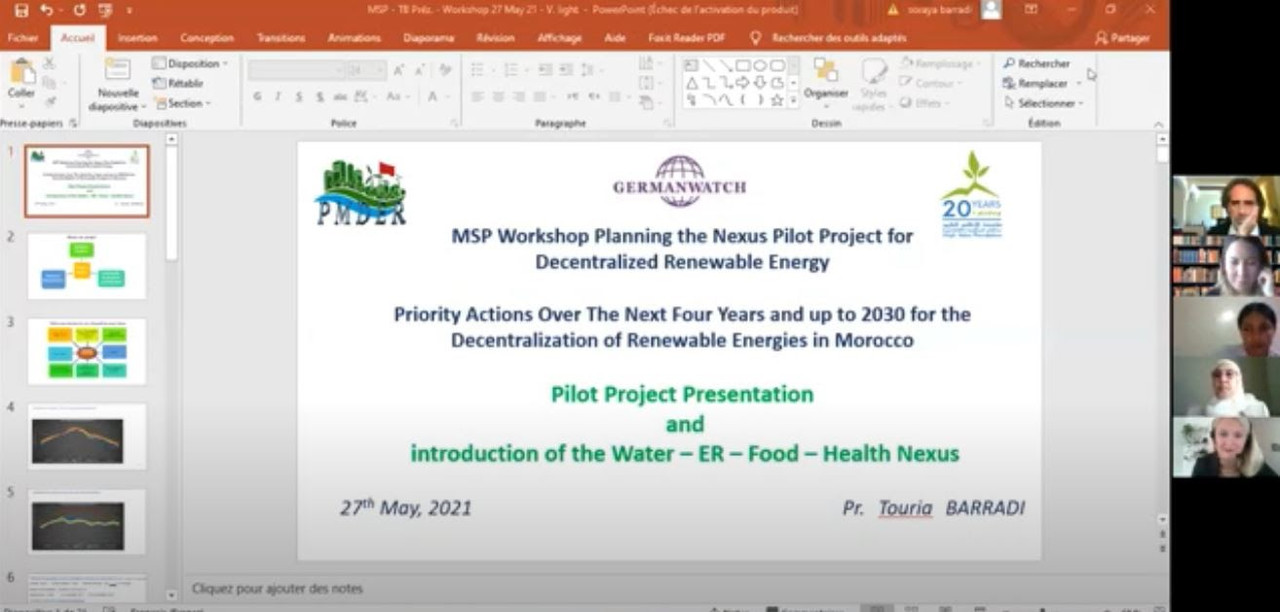The MSP workshop: Building partnerships and Planning the Nexus Pilot Project for Decentralised Renewable Energy in Youssoufia
Written by Zainab Hachoumi, HAF Intern

On May 27, 2021, the High Atlas Foundation, together with GermanWatch and the Moroccan Platform of Decentralization of Renewable Energies (PMDER), organized an online workshop that gathered different stakeholders and representatives from the public sector, academia, civil society, and the private sector from Morocco, Africa, and Europe.
The main objective of the MSP workshop was to create partnerships and implement a decentralized community water and nursery project in the rural commune of Jnane Bouih in the province of Youssoufia. This meeting came as a follow-up to the General Assembly held a few months ago in Youssoufia which set the building blocks for the pilot project.
The MSP workshop highlighted the priority actions and steps to be taken to go about the decentralization of renewable energies in Jnane Bouih as well as the micro-projects that would stimulate socio-economic development for the population.
As Ms. Touria Berradi, professor and expert in the energy field and member of the Moroccan Platform of Decentralization of Renewable Energies (PMDER), mentioned in her presentation, decentralized renewable energy is at the heart of the project. However, other multiple aspects are covered in this regard, two of which are the social and economic aspects. The project will have a great impact on the alleviation of rural-to-urban migration by creating employment through the implementation of income-generating activities. It will also solve problems related to education, women, hygiene, and health.
The approach to put an end to these issues is inclusive in that it integrates different elements into one. The needs and wants of the population are interrelated, and the project will not only satisfy the community in terms of electrification and water but also in terms of food, education, and social independence.
In this regard, Dr. Yossef Ben-Meir, HAF President, listed the top 5 priority actions to take next, namely:
- Implementing a 4-day Imagine workshop with the women of the Jnane Bouih commune at their earliest convenience
- Engaging the USAID F2F program in order to provide technical assessment in regard to the design of the nursery, and other related infrastructure for the Youssoufia project
- Inviting FENELEC’s participation to take part in the project
- Communicating with GermanWatch to find a way in relation to the resources that can be applied to the project
- Disseminating a project proposal regarding the Youssoufia project, including its budget
It is important to note that the implementation of the project could be difficult, if not impossible, without the cooperation of a number of decision-makers. This is a key factor in the acceleration of the project process as well as in the sourcing of financial and technical support from different organizations. The African and European socio economic fabric could be a great way to work together in order to achieve sustainable development on a local, national, and international level.